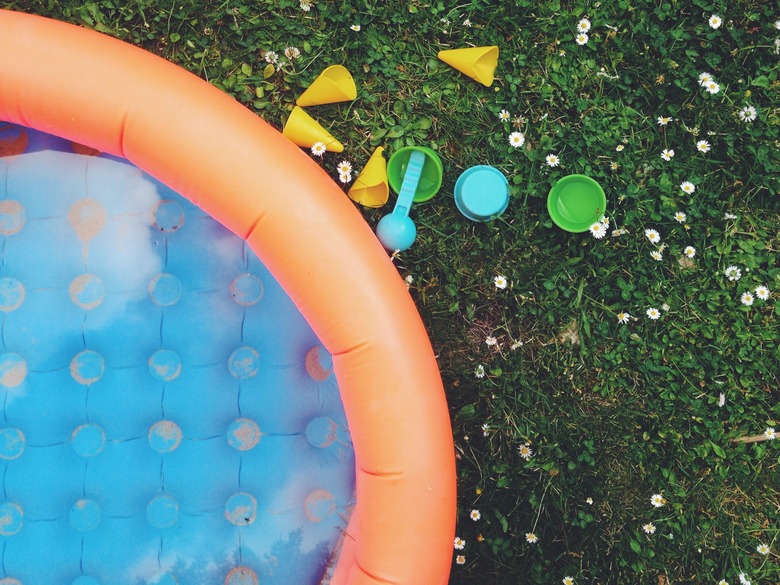How To Not Kill Grass With A Pool
We may receive a commission on purchases made from links.
Although you may have enjoyed playing in inflatable pools while growing up, one of the problems your parents may have faced was figuring out how to not kill grass with a pool. If you own an inflatable pool and want your kids to enjoy the water but still wish to save your grass, you have a couple of options. Memories of childhood last forever, but dead grass spots around the yard can be a thing of the past.
Grass Dying Under Pool
Grass Dying Under Pool
Inflatable pools may seem light compared to larger pools, but it's not the pool's weight that's killing the grass. Pools block out the air, sunlight and water that grass needs to survive. When you keep an inflatable pool in one spot, sunlight, air and water can't reach the grass underneath the pool.
Pool Location Options
Pool Location Options
It would help your lawn's longevity to empty the pool and hang it to dry after each use, but if that's a cumbersome task, at least try to move it to a different spot every 12 to 24 hours. If you have scheduled lawn maintenance by landscapers, make sure the inflatable pool is out of the way before they come to mow your grass. You want to make sure that your whole yard is being treated, and if the pool is on the grass, your landscapers won't treat the spot underneath the pool.
If you don't want to keep moving the pool around, another option is to place the inflatable pool on a hard surface area, like a patio or driveway. Placing your pool on a hard surface will protect your grass from dying, and when it's time to dump the dirty water, you won't be pouring it on your grass.
If you're worried about your children playing in a pool on a hard surface, put something underneath your inflatable pool, like a mat. The pool bottom will stay cool because of the mat, and the bottom of the pool won't feel so hard due to the barrier created by the mat.
Inflatable Pool Cleaning Tips
Inflatable Pool Cleaning Tips
Although inflatable pools are convenient and fun for children, germs can spread quickly because it's unsafe to put germ-killing disinfectants, like chlorine or bromine, in kiddie pools. You can put germ-killing disinfectants in larger pools, but if you put them in kiddie pools, your children will splash them out of the pool. This means not much disinfectant will actually stay in the pool.
Also, kiddie pools don't have filters, so the debris that would typically be filtered out, such as leaves, dirt or skin cells, will stay in the pool, and what little disinfectant is left will fight the debris and won't be able to attack the germs in the pool. Not adding disinfectants to a kiddie pool has its pros and cons. A pro is that the harsh chemicals won't spill on your grass. A con is that you need to make sure you're cleaning your pool almost daily to fight the germs that stay in the pool.
To clean the pool, empty the dirty water, remove any debris and rinse off the dirt with fresh water. Always make sure that you're letting the pool air-dry completely. If your child has an accident in the pool, you can disinfect the pool with soapy water or household bleach. If you're using bleach, dilute 1/2 cup of bleach in a gallon of room-temperature water. Rinse thoroughly with clean water and allow to air-dry.
